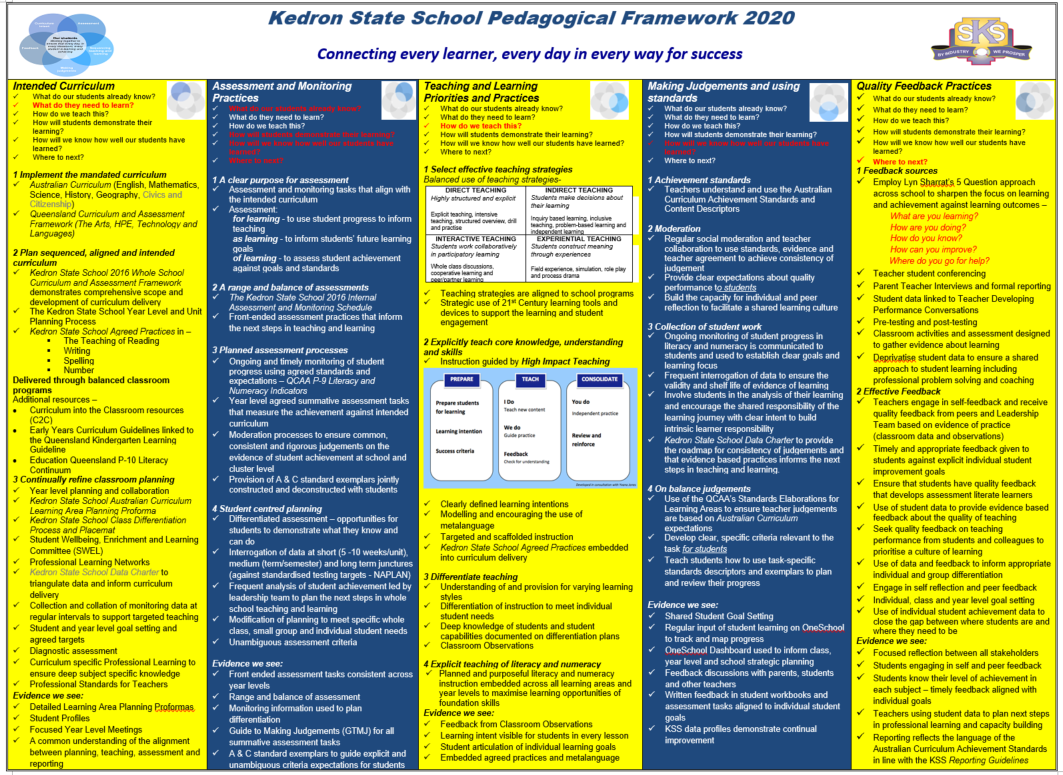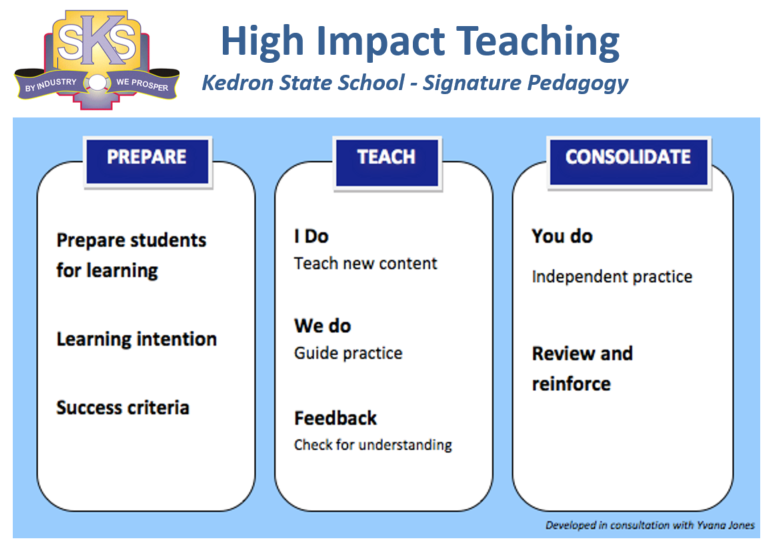Optimising every student's opportunity to achieve to their full potential is Kedron State School's commitment to all students.
Kedron
State School's Pedagogical Framework provides a central focus on the whole child and as such outlines the expectation for curriculum delivery.

Assessment and Monitoring
At Kedron State School, our educators use a variety of standardised, diagnostic, formative, monitoring and summative assessments to ascertain learning needs, determine achievement and inform teaching. Assessment is consistent across year levels and is front-ended at the beginning of a unit of learning. Students are assessed throughout and at the end of a unit of work to determine their overall understanding. Students in Years 3 and 5 participate in NAPLAN (National Assessment Program in Literacy and Numeracy).
Sequencing Teaching and Learning
Our Whole School Curriculum, Assessment and Reporting Plan ensures a cohesive progression and sequence of learning. Our students are exposed to a wide variety of learning opportunities through each of the learning areas across all year levels. We also provide many opportunities for students to be involved in a range of additional curriculum offerings.
Our signature, research evidenced instruction is guided by High
Impact Teaching, which involves teachers employing the gradual release of responsibility when explicitly teaching core knowledge, understanding and skills. The key selection and balanced use of effective teaching strategies provides students with the opportunity to learn in diverse ways.

Differentiation
Kedron State School has policies and procedures to support differentiation for all students across all curriculum areas.
Our shared understanding of individualised education at Kedron State School involves knowing the learner through the identification of student needs and responding to them in a planned approach so they are challenged, supported and encouraged to reach their potential. We offer many opportunities to support, extend and enrich our students.
Our teachers utilise three pathways for differentiation:
- Know your students
- Know your curriculum
- Vary your pathways
Making Judgements
Our teachers work in year level teams to analyse student evidence of learning to ensure consistency of judgements against the Australian Curriculum Year Level Achievement Standard. Consistent teaching and learning practices are defined through our Pedagogical Framework. We prioritise teacher professional development to ensure best practice and improved outcomes for all students. Student assessment pieces and portfolios are moderated across year levels and across a cluster of schools to ensure consistency of assessment and judgements.
Quality Feedback Processes - Reporting
Written report cards are issued twice yearly, using a five-point scale to report student achievement. Parent teacher interviews are offered twice yearly. A range and balance of assessment tasks are used to demonstrate student learning and inform end of semester reporting.
Reporting on student learning reflects the content, skills and application of knowledge of what has been taught and assessed.
Our reporting comments reflect:
The achievement standards of the Australian Curriculum: English, Mathematics, Science, Humanity and Social Science, Technology, Language, HPE and The Arts
an individualised future focus comment for English and Mathematics- Engagement and Behaviour
Kedron State School Expectations and Learning Behaviours
Teachers provide feedback to students both formally and informally through a variety of modes, including; conferencing, written feedback and verbal feedback.